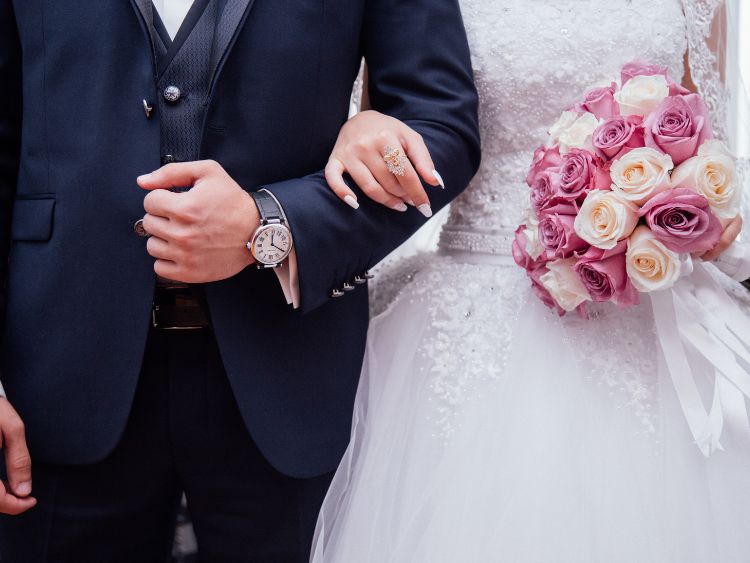Why do people go to counselling prior to their engagement? Studies show that serious breakups can lead to post-traumatic stress disorder in the broken-hearted. Also, the current divorce rate is not particularly encouraging for couples.
Why should couples who have never been engaged get together for therapy? Why shouldn’t they be engaged in puppy affection?
Pre-engagement counseling isn’t necessarily for couples with issues. It’s for couples who have a serious future together and wish to make sure they have the right tools to build a marriage that lasts forever.
Engagement counseling is a standard Arrangement Tips method used by religious couples to prepare for their serious relationships. Of of course, you don’t have to be religious to benefit from couple counseling prior to marriage or engagement.
Engaging therapy is a method to help couples overcome disputes, improve communication and manage expectations.
Why pre-engagement counseling is better than counseling for premarital issues?
The purpose of pre-engagement counseling is the same as before marriage counseling: to help strengthen the relationship.
One of the advantages of pre-engagement counseling over pre-marital counseling is that there are no timelines to work against.
Instead of trying to resolve your problems before the wedding date is set, you will have time and space to discuss your emotions with your spouse.
Engaging therapy can help couples strengthen their bond and slowly work toward a healthy engagement.
Another benefit is that there is no real pressure.
A consultation may show that you and your spouse don’t get along. It’s not necessary to break off a public engagement, or Pre-engagement counseling disappoint relatives by not attending an engagement. There aren’t any ‘break the day cards to mail out.
5 advantages of pre-engagement counseling
Pre-engagement counseling can be an excellent way for couples to create a great relationship together.
Health Research Funding published a survey that found that 30% of married couples who sought out counseling prior to when they got married were more successful in their marriage rate.
1. Find the little things
Couples often attend marriage counseling to determine if they make the right couple.
A good mix of compatibility makes for a wonderful partnership. Yes, there is a tendency for opposites to attract, and opposite opinions can help partners become more open and patient. In certain ways, having the same values and morals can help you get started in a union.
Some of the pre engagement counseling questions you’ll be asked during your counseling sessions are:
- What do commitment and fidelity appear to you? What are you thinking about when you cheat?
- Do you want children? Do you wish to have children?
- How do you want to educate your children?
- What do you think of sexual sex?
- Do you have the same faith? What’s the importance of this faith to you?
- What are you going to do to remain in the relationship when your partner lets you down or
- hurts your feelings?
- What will you be living?
- What are your goals for the future?
- What’s your financial situation? What are your expectations of your partner’s financial situation? If you are a parent, will your partner remain employed, or do they want to stay at home and care for the child?
- How important is family/in-laws on your list of priorities?
- What do you hope to get out of an engagement and future marriage?
A lot of couples overlook incompatibilities since they cherish each other and maybe hope that their partner will make a change on key issues one day.
In the course of the counseling prior to engagement, couples will be brought face to face with qualities and beliefs that can make their future marriage stronger – and the ones that could make them an incompatible couple.
2. Set boundaries that are healthy early
Boundaries are a wonderful aspect of relationships. Boundaries can help spouses understand and respect the boundaries of each other.
In the engagement session, couples will be able to discuss their sexual, physical, emotional, and even the boundaries of time (“I want to be married, have a child or live in Alaska when I’m the age of X.”)
Couple counseling is a wonderful way to discuss your limits prior to your wedding. Your counselor can help you with this issue without feeling uncomfortable or imposing by discussing the important issues.
3. Intimacy: Nurture and develop it
Emotional intimacy is as important as physical intimacy in a future relationship. Studies have shown that couples who spend more time together are more likely to appreciate emotional intimacy more than sexual fireworks.
It has been proven that emotional intimacy can help to reduce stress and improve partner well-being.
You’ll be able to build and strengthen emotional connections in the dating stage and you will be on the right track to a successful and stable marriage.
4. Create realistic expectations for your the marriage
It’s all about partnership. Two people joining their lives with the promise to support and love each other is the marriage. Although it sounds like a romantic idea but it’s not an easy undertaking.
Counselling can be used to assist couples in setting reasonable expectations regarding how an ideal wedding will look and feel like before they tie the knot.
Examples of unrealistic expectations include:
- Being a sex addict every day throughout your life
- Be confident that your spouse will never change.
- Thinking all your time should be spent with each other
- Never compromise
- You think that your partner can solve or complete your problems
Realistic expectations help dispel the myths surrounding marriage and help couples realize that it isn’t hard, but it won’t always be easy, either.
Having realistic expectations about household chores, social activities outside of the marriage, and working toward keeping sexual intimacy and sex going can help couples enjoy an enjoyable relationship.
5. Learn to communicate
Communication is the base of all relationships.
Couples will be taught how to communicate effectively during engagement therapy. This includes knowing how to compromise and fight in a fair way.
If they lack the ability to communicate effectively couples can be emotional distant or revert to tactics that can hurt their relationship (such as squeezing a spouse out, or reacting emotionally or saying hurtful things during a heated argument.)


